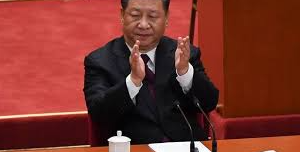High-Ranking Politburo Members Reassigned Without Explanation
In a rare and unexpected reshuffle, two senior members of China’s Politburo have exchanged roles, according to state media reports on Wednesday (Apr 2). The move, which analysts describe as unprecedented at this level of the Communist Party hierarchy, was not accompanied by an official explanation.
Shi Taifeng has been reassigned to lead the Organisation Department, overseeing internal party appointments, while Li Ganjie now heads the United Front Work Department, which manages the party’s influence over religious and ethnic minorities, as well as its approach to Hong Kong and Taiwan.
A Reshuffle With No Clear Justification
While top government ministers in China are sometimes rotated to different positions to prevent the consolidation of power in specific regions, analysts note that such a direct job swap between Politburo members is highly unusual.
“This is common for government ministers, but within the Politburo, these roles are highly influential,” said Alfred Wu, associate professor at the National University of Singapore.
Both Shi, 68, and Li, 60, were promoted to the 24-member Politburo in 2022, though neither sits on the elite seven-member Politburo Standing Committee, the highest level of authority in China’s political system.
President Xi Jinping has led an extensive anti-corruption campaign since taking power in 2012, but there is no indication that this reshuffle is linked to any allegations against the two officials.
Backgrounds of the Two Officials
Shi Taifeng, considered a close ally of Xi, previously worked under him at the Central Party School. He later held leadership positions in Jiangsu province, as well as in Ningxia and Inner Mongolia—regions with significant ethnic and religious minority populations. In 2022, he was appointed head of the United Front Work Department.
Li Ganjie, the youngest member of the Politburo, has a background in nuclear safety. Before entering politics, he held various senior roles in nuclear regulation and later became China’s environmental protection minister in 2017. His rapid rise saw him serve briefly as governor of Shandong province before his Politburo appointment.
Broader Political Changes
China has seen notable shifts in political personnel over the last two years. Two former defence ministers have been investigated for alleged corruption, and former foreign minister Qin Gang was abruptly removed. In November, a senior military official was also placed under investigation.
Some analysts believe this latest reshuffle signals dissatisfaction with the Organisation Department’s role in selecting party leadership. “Given recent leadership purges, this move may suggest that Xi wants to tighten control over the selection process for top officials,” said Wen-Ti Sung, fellow at the Atlantic Council’s Global China Hub.








